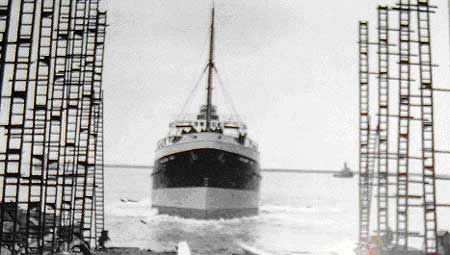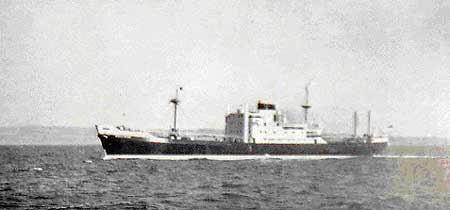|
Memories of growing up in Leith. The trials and tribulations of the period, allied to the camaraderie of the community in facing up to an uncertain future made a lasting impression on John Stewart.
While doing my apprentice at the shipyard in Leith I was paired up with a senior apprentice, Sammy Wright to show me the ropes. Sammy was a real character. Only eighteen years old, two years older than me, he taught me a lot more than just ship plumbing work. He always fancied himself as a singer and a dancer.
At this time, talent contests were often held in the Capitol cinema each Sunday evenings. Sammy decided to enter it. I used to go along with some of my mates for the entertainment and this time we decided to support Sammy.
His piece was 'My Heart is Broken' from the White Horse Inn. He wasn't a singer but he could put it over with enthusiasm. Lo and behold, he won the contest.
As I said, Sammy taught me many things, for instance how to back horses. He would assign me to a job while he sat back reading his paper and studying form.
This used to annoy me, for whenever the gaffer was about to appear, down would go the paper and he would bend over the work I had done. Good job thought the gaffer giving him the credit for it.
While he did muck in, often he would stop for a cigarette. 'Just having a break,' he would apologise. Carry on working he would tell me because I had no reason to stop for a puff, not being a smoker. I thought this really unfair.
When it was time for our tea break it was my job to fill the billycans with water and boil them on the riveters fire.
We always had a howf on board a ship. This was where we stored our toolboxes and had our official breaks. If the ship was well advanced in construction, we would commandeer a cabin that was not yet fitted out. Here we had some comfort. Else, we had to make do in bare steel surroundings. 
T.S.M.V. Golden Bay for the Portland Cement Co. Ltd
Working conditions varied depending on where you were assigned. If the ship was on the stocks, then conditions could be quite uncomfortable. Not withstanding the cold sea wind that howled around you if you were working on the open decks during winter, the noise was another.
My worst experience of noise was when working in the cramped cold steel double bottoms. This was the very base of the ship where suction pipes were installed for the transfer of ballast or diesel fuel storage.
Only about 18' high you had to crawl and pull yourself through lightning holes at the same time manoeuvring lengths of 3' steel piping each about 18 ft long. These were originally put in place early on during construction while access was still available.
Many a finger or hand was injured while working there. The noise of riveter's and caulkers as they worked on the hull was deafening especially when you were enclosed in what was virtually a sound box. This was before the time Health and Safety Regulations made it mandatory for the supply of earmuffs and safety helmets.
'Flashes' were another constant phenomena. If you were unlucky to catch the glare of an electric welding arc being struck, you knew you were in for a very uncomfortable period during the next twelve hours.
Sometime during the evening you would feel as if someone had filled your eye sockets with sand. You could not open your eyes and any slight movement of the eyeball resulted in excruciating pain.
Not a cure but a palliative, old tealeaves wrapped in a handkerchief then tied tightly about the head could preclude any eye movement. This seemed to do the trick. In time you got some sleep.
Sometimes attendance at hospital in the middle of the night was a must. Here the doctor would ask you to open your eyes. The eyes cried out in protest. However some drops of what ever you called it eventually numbed the pain.
All the time I worked along side Sammy, we were allocated mainly steel pipework jobs. It was heavy work but very satisfying completing the job. Ships were like no other building sites. By their very nature, straight lines and corners were non-existent.
The rolls and curves of the hull presented challenges in running pipework. At times measurements would not suffice but rather wooden templates had to be made in order to follow the contour of the ship's hull. Pipes were then bent to the template shape.
I don't think I had ever scaled a ladder before, but it became second nature here in the yard. Clambering from wooden staging to wooden staging, hauling on ropes with pipes dangling from the end was something to behold. Monkeys swinging from tree to tree had nothing on us. 
M.S. Zealand for the Currie Line of Leith
John Stewart, 2001
| |


